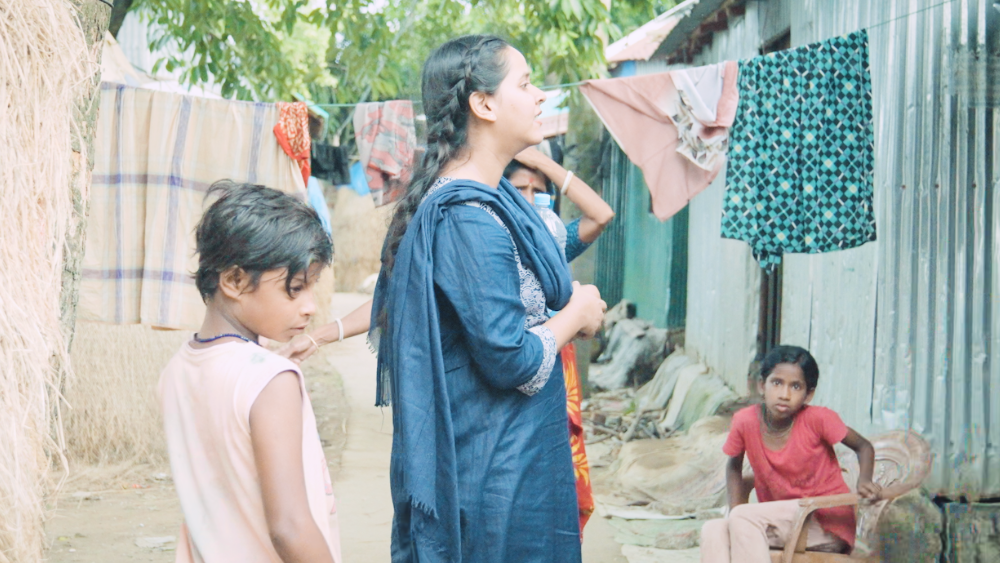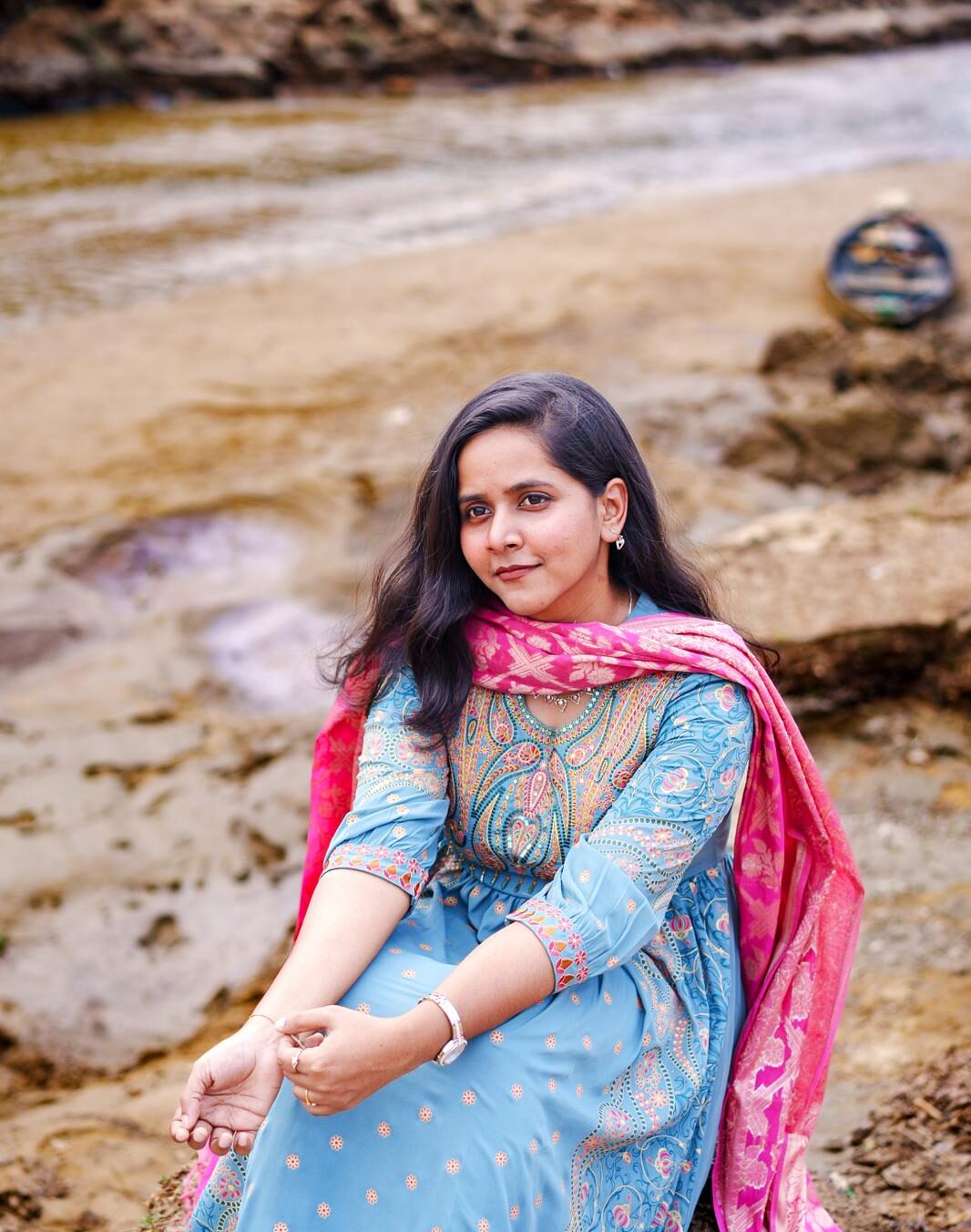Written by Mia Goldberg
Photography by Asif Musaddeque
As a part of the British Council funded Neel Akash [Blue Sky], artist and collaborator Anandita Khan travelled to Bahadurpur – a village outside of Sylhet – in order to better understand the impacts of climate change in rural Bangladesh.
Anandita was born and raised in Dhaka, Bangladesh’s capital. Like many metropolitan cities in Bangladesh, citizens in Dhaka are less exposed to the direct impacts of climate change and flooding. Therefore, to inform the Neel Akash project Anandita undertook the long journey to the north eastern village of Bahadurpur, which is only accessible by boat, to increase her understanding of what life is like for those experiencing extreme floods, year after year.
Extreme weather conditions are forcing many people living in rural Bangladesh to migrate to the larger, less affected cities, which comes with its own set of complications. Not only do families have to leave their homes and communities, many struggle to find work, leading to poor living conditions and subsequent health risks.

The journey to Bahadurpur: Anandita took the bus from Sylhet to Sunamganj. They spent the night there, speaking with people in the village. The following day she travelled by rickshaw to Bishwamvarpur. Then she took the boat to Bahadurpur. Although the boat felt cheap for Anandita, for those living there the unavoidable and frequent journeys into and out of the village add up.
Day 1: Spent getting to know the local people. How they spend their days, what they wish for, what they lack, and their experiences in the floods.
Day 2: Visited another nearby village, Tahirpur, which is more well off and popular with tourists, but still struggles because of the floods.
Anandita spoke with a woman who explained that she had paid for a wall to be built around her home, to protect it, however the flood’s current is so strong that the wall had fallen down.
Day 3: A day spent observing fishermen and farmers at work. Anandita didn’t want to interrupt their work by talking with them too much.
Anandita explains it was difficult to travel to an area that has dealt with so much loss, with the aim of talking to people about their experiences, as opposed to directly contributing to the reconstruction of their lives, describing a feeling of ‘helplessness’ by the end of the experience. She spoke with those living there about their all-too-frequent experiences fleeing their village to various flood shelters, and their uncertain journeys home when flooding calms down again – not every home survives the floods.

South Asian countries are among some of the most at risk to the impacts of climate change. According to the International Centre for Climate Change and Development, between 2000 and 2019 Bangladesh was the 7th most impacted country in the world by climate change, and Pakistan was 8th.
According to the Climate Reality Project, Bangladesh is projected to loose 11% of its land to rising sea levels caused by climate change, which will displace up to 18 million people. A Guardian article from over ten years ago entitled ‘Dhaka: the city where climate refugees are already a reality,’ explains the majority of the 400,000 migrants arriving in Dhaka each year have left their homes because of climate change.
Sampad director Piali Ray explained that Anandita’s visit to Sylhet was a key part of informing the Neel Akash project, ensuring the performance would be rooted in a harsh and often ignored reality. Many people who are Bangladeshi or have Bangladeshi heritage in Birmingham have links to Sylhet and its surrounding areas, Piali explains, so not only does Anandita’s visit to Sylhet allow her to approach the project with a profound understanding of the impact of flooding in Bangladesh, it allows audiences to connect with the performance, highlighting that the impacts of climate change could be much closer to home than we think.
When bringing Neel Akash to Yardley Primary School on July 1st, I watched children tap each other, raising hands excitedly as Anandita presented characters in the dance such as দাদু [dadu], meaning grandfather.
They were eager to share that many of them used the same or similar languages to Bangla, with many children who had Bangladeshi ethnic backgrounds, with one child in the small class of twenty two having a Sylheti Bangladeshi ethnic background.

Thanks to the British Council Connections through Cultures grant, Sampad and Anandita Khan are collaborating in order to work on Neel Akash [Blue Sky] – a conversational, engaging and educational tool that will contribute to climate change action.

